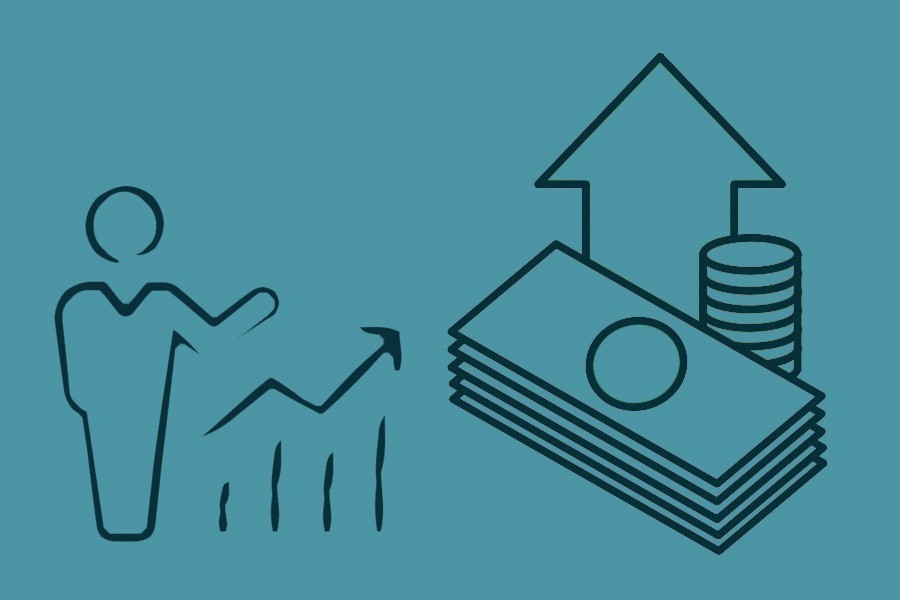Every year when the finance minister unveils the annual national budget, a set of budget document is released by the ministry of finance. One of the documents is 'Bangladesh Economic Review.' Although it is not a budget-related core document like the Annual Financial Statement, nevertheless the economic review is important as it presents the country's overall economic and development scenario with a time series of various macroeconomic and development indicators.
This year, however, was an exception. When finance minister AHM Mustafa Kamal presented the budget for fiscal year 2020-21 (FY21) in the national parliament on June 11, the economic review for 2020 was missing. As the spread of Covid-19 has shattered many routine works, it appears that the economic review has become a casualty! Finance ministry officials, responsible to prepare the document, said that due to prolonged public holidays to contain the spread of deadly disease, it was not possible to collect and accumulate necessary data and statistics in this regard. That's why they could not prepare and release the annual document. They, however, added that the document is likely to be released in August this year.
No doubt the sudden storm of Covid-19 severely disrupted the economic activities in the last quarter (April-June) of the current fiscal year (FY20). Though the government has opened up different businesses and social activities after extended public holidays, normalcy is yet to return as the scale of infection and number of deaths are still growing. The country was, however, in a normal mode during the first three quarters (July-March) of the current fiscal year except the last week of March when public holiday or unofficial lock-down started. Thus, data of this period are not be unavailable.
Generally, economic review provides statistics of nine to ten months of any ongoing year as the latest data as the document has to get ready by the first week of June. It also includes complete data of the previous years. After compiling all the data and doing analyses on the basis of these data, the document is sent to BG press for printing. It is a time consuming process and difficult to accommodate even 11 months' data. Moreover, the finance ministry is largely depended on Bangladesh Bureau of Statistics (BBS) and other ministries and agencies to get the latest developments in different areas and sectors.
The Covid-19 pandemic has also exposed the weakness of the country's data collection process. For the first time in many years, BBS did not release any provisional estimate of the Gross Domestic Product (GDP) and national accounting. The national statistical agency used to prepare and release the provisional estimate of GDP by May every year, based on nine months available data. The practice has changed in the last few years as BBS is now releasing the provisional estimate in early April based on less than eight months' data on different economic sectors. Economists, statisticians and experts raised questions on its reliability and necessity of the 'too early estimate' of GDP.
It is thus difficult to understand why BBS did not release the provisional estimate of GDP this year with almost nine months data in hand. By releasing the inflation data up to May this year, BBS showed that it is enable to capture data of different economic activities during the Covid-19 period. Moreover, collection of data on economic activities is a continuous process and there is no strong reason to believe that BBS couldn't collect field data for the first three quarter or at least eight months of FY20. After accumulating those data, it was also not impossible to prepare the nine-month update of the macroeconomic scenario. It was also possible to make preliminary estimation of national account considering the impact of Covid-19. The finance minister, in his budget speech, mentioned that GDP would grow at 5.20 per cent in the current fiscal year. It is a downward revised target against the actual target of 8.20 per cent. It is also estimated that investment-GDP ratio would come down to 20.80 per cent in FY20 from 31.57 per cent in FY19. These estimates are preliminary and it was definitely backed by adequate exercise as it is done annually. If this exercise could be place, it is not clear why BBS did not make the provisional estimation public by releasing it on its website.
Similarly, the finance ministry could have sought data of nine months from different ministries, bodies and agencies to compile and prepare the annual economic review. Given the difficulties posed by the pandemic, a brief document could have been produced.
The annual economic review is also considered as an element of the government's transparency and accountability exercise. By producing the document during budget placement every year, the government also tries to show its views on different aspects of economic development by analysing time series data.
Again, unlike the annual Economic Survey of India, which is generally unveiled on the budget day, the review document in Bangladesh is yet to be critically analytical. It is still a typical government document and the views and reviews presented in it reflect government's observations and thoughts only. It is expected that the authorities will produce and release a critically analytical economic review this year which will reflect the impact of Covid-19 and subsequent changes in the country's socio-economic fronts. This is an opportunity to start a qualitative change in the important document.


